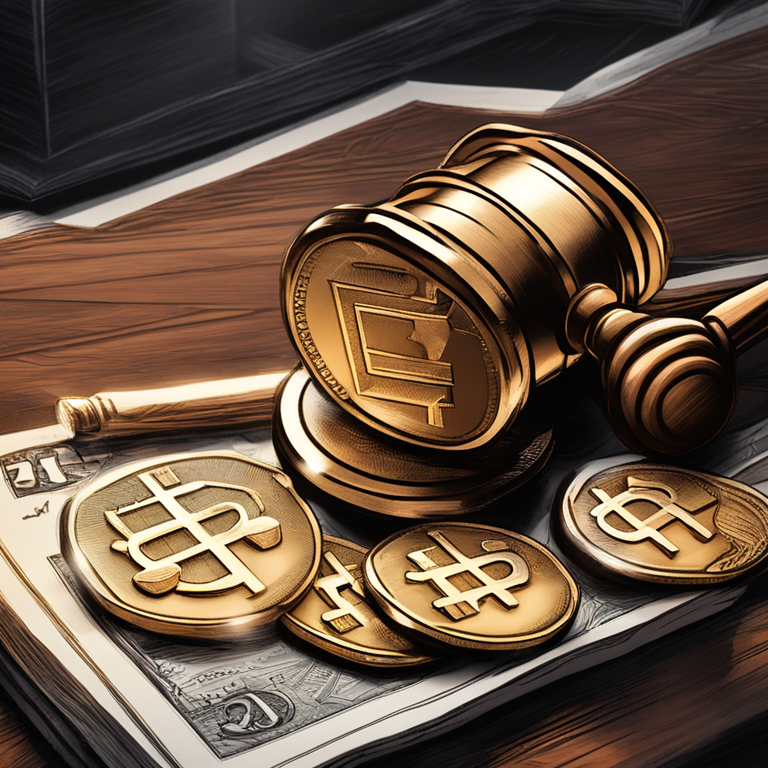A Twist in the Blockchain Saga: Australian Regulator Triumphs Over Qoin, With a Twist
- byAdmin
- 06 May, 2024
- 20 Mins

A Twist in the Blockchain Saga: Australian Regulator Triumphs Over Qoin, With a Twist
In a fascinating turn of events down under, the Australian Federal Court has mostly sided with the country's market watchdog, ASIC, in its legal scuffle against BPS Financial Pty Ltd regarding its Qoin cryptocurrency project. However, the victory dance for the regulators comes with a twist. While the court decreed that BPS had engaged in unlicensed activities, it notably diverged from ASIC's stance, ruling that the blockchain technology underpinning Qoin does not in itself constitute a financial product. This nuanced verdict lights a new path in the legal odyssey of regulating blockchain and cryptocurrencies, marking a significant day in Australian legal and financial realms.
Down Under's Legal Tangle: A Victory with a Blockchain Twist for Aussie Regulator Against Qoin

In an almost cinematic courtroom drama from Australia, the Federal Court has thrown a curveball in the ongoing saga between the Australian Securities and Investments Commission (ASIC) and BPS Financial Pty Ltd over its Qoin venture. The ASIC, akin to a tenacious underdog in legal lore, mostly emerged victorious, asserting its stance that BPS had been playing fast and loose without the necessary licenses. Yet, this win isn’t without its quirks. In a narrative twist, the judges countered that the blockchain technology powering Qoin isn't a financial product by itself. This pivotal moment in the courtroom not only adds spice to the ASIC's regulatory crusade but also scribbles a new chapter in the global manual on crypto regulation. It’s kind of like saying, "You may have been speeding, but the car itself isn't illegal."
Unsurprisingly, the verdict has been a cocktail of satisfaction and contemplation among industry watchers. Blockchain Australia Chair, Michael Bacina, weighing in like a sage, remarked, "This is a seminal moment for acknowledging blockchain’s place as a foundational technology." Here, the court subtly hinted at a larger, more philosophical debate: while users' actions might stray into questionable territory, should the digital infrastructure they utilize be tarred with the same brush? Bacina's insights illuminate this divide, cheerleading the notion that even if a user's conduct on the blockchain may warrant a gavel's bang, the blockchain itself remains neutral ground—a mere platform for innovation and ambition, albeit at times, misguided.
The backstory to this cutting-edge legal duel highlights Australia's trailblazing (or treacherous, depending on whom you ask) path through the thicket of cryptocurrency regulation. ASIC, armed with regulatory zeal, has been navigating the murky waters of digital currency, aiming to pin down what, exactly, constitutes a financial product in the ethereal world of blockchain. This case, particularly the spirited debate over whether the very bones of blockchain could be deemed a financial service, sheds light on the broader international struggle to reconcile fast-evolving tech with laws designed in a pre-digital era. It illustrates a global legal ecosystem scrambling to suit up in digital armor, wrangling with the shadowy nuances of innovation, finance, and regulation.
Additional Information
In a landmark ruling, the Australian Federal Court disentangled the intricate relationship between blockchain technology and financial securities regulation. The decision meticulously differentiated the Qoin blockchain from traditional financial products, setting a precedent that could reverberate across the globe. While ASIC’s victory underscores the regulator's evolving approach to digital currencies, the court’s nuanced understanding of blockchain as a technology, rather than a financial tool, introduces a fresh perspective into the ongoing debate about cryptocurrency’s place in the financial system. Statistics suggest that global blockchain technology revenues will experience significant growth over the next few years, indicating its increasing importance across industries. This case highlights the legal system's efforts to keep pace with technological advancements, aiming to strike a balance between innovation and regulatory compliance.
Conclusion
The Aussie courtroom drama between ASIC and BPS over the Qoin project has unspooled like a blockbuster, complete with unexpected plot twists and profound takeaways. The court's decision to side with ASIC on licensing issues while simultaneously declaring that blockchain technology itself isn't a financial product opens new chapters in the lexicon of legal and tech narratives. This verdict might just be the plot turn needed to nudge regulators and innovators onto the same page, fostering an ecosystem where safeguarding consumer interests and nurturing technological advancements go hand in hand. As Australia carves its path through the dense thicket of digital currency regulation, this case will likely serve as a beacon for other jurisdictions wrestling with similar dilemmas, lighting up the murky crossroads of law, finance, and technology. On a grander scale, we're witnessing the establishment of foundational jurisprudence for the digital age, potentially guiding future tales of crypto, blockchain, and beyond. So, while the dust settles down under, the global audience watches keenly, popcorn in hand, for the next episode in this saga of innovation versus regulation.
Ethan Taylor
Ethan Taylor here, your trusted Financial Analyst at NexTokenNews. With over a decade of experience in the financial markets and a keen focus on cryptocurrency, I'm here to bring clarity to the complex dynamics of crypto investments.



